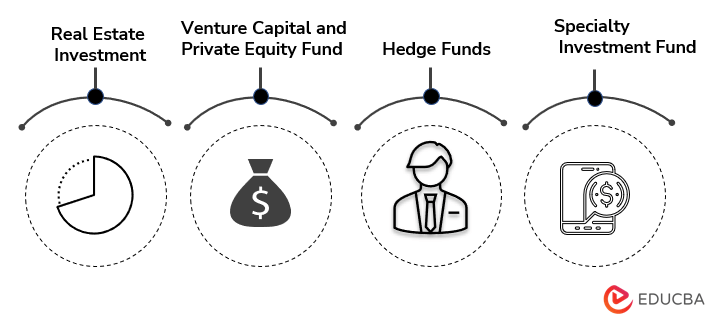Updated July 19, 2023

Introduction to Accredited Investor
An accredited investor is an individual or a corporation that is allowed to trade in securities that are not registered with any financial regulatory authority and also not available to the general public.
To become an accredited investor, an individual or corporation needs to fulfill certain requirements like net worth, income, size of the assets, governance status, etc. These investors are generally high net worth individuals, banks, or financial institutions that do not fully need the protection of financial authority by the way of regulatory disclosure filings.
Explanation
The capital raising exercise from the general public involves a lot of costs including the cost of registering the securities with regulatory authorities like the SEC (Securities and Exchange Commission). To avoid this complex and costly process some companies offer their securities directly to accredited investors. There are a lot of risks involved in this investment and the investors can even lose their entire investments.
That is why regulatory authorities prescribe certain conditions to be fulfilled for being an accredited investor such as high net worth, size of the assets, income and governance status, etc. so that not every investor invests in them. Since the securities are not registered with any regulatory authority, therefore, the role of regulatory authorities is limited to providing guidelines for setting required benchmarks for becoming an accredited investor. These requirements vary or differ from one jurisdiction to another.
How to Become an Accredited Investor?
As mentioned earlier, the requirements of becoming accredited investors as per the guidelines laid down by the regulatory authority vary as per the jurisdiction. The requirements of becoming accredited investors as per the U.S. Securities and Exchange Commission Rule 501 of regulation D are as follows:
- Investors should have an annual income of $200,000 as an individual or $300,000 as a joint income. Investors should have earned the mentioned income in the last two years and should be expecting the same or higher income in the current year as well.
- For becoming an accredited investor an individual must have a net worth of above $1 million either individually or jointly with the spouse. The general partner, executive director for the issuer of the unregistered securities is also treated as accredited investors by the SEC.
- An entity can become an accredited investor if it is a private business development company with an asset size exceeding $5 million. An entity having accredited equity investors is also considered an accredited investor.
- An accredited investor also includes registered brokers and investment advisors etc. Also, anyone having the required education and experience can qualify for becoming an accredited investor.
If an individual or a corporation fulfills one or more of the above requirements, then they can reach out to the issuer of the unregistered securities and the issuer will ask the investors to fill out a questionnaire to clarify whether they actually qualify to become an accredited investor or not. Apart from this, there is no formal process to become an accredited investor.
Example of Accredited Investor
Let us take an example of a person or investor whose annual income is $180,000 for the last three years, $600,000 in a saving account, $400,000 in a 401 (K) plan, a new car valuing $90,000, and a loan payable of $100,000.
In this case investor’s annual income is below $200,000 as required in the case of a single accredited investor. Further, net worth which is calculated as assets reduced by liabilities comes out to be $9,90,000 [$600,000+$90,000+$400,000-$100,000]i.e. less than $1 million. The individual cannot qualify for becoming an accredited investor.
In the same case, if the net worth of the individual would have been $1 million or above, he would have been eligible to become an accredited investor irrespective of the level of his income.
What do Accredited Investors Invest In?
Accredited investors can invest in securities or investment options that are not available to the general public:

- Real Estate Investment: The accredited investors can go for a partial stake in real estate investments, this type of investment is also known as crowdfunded real estate investment.
- Venture Capital and Private Equity Fund: The accredited investors also invest in venture capital i.e. when a start-up company raises capital through unregistered securities and private equity funds which means when an already established company decides to increase its capital or share valuation and offers securities directly to accredited investors for this matter.
- Hedge Funds: Accredited investors can also go for investing in hedge funds which is actually professionally managed fund very much like mutual funds with less regulatory requirements regarding how they can invest their funds. Less regulation makes it easier for hedge funds to choose highly complex alternative investment options.
- Specialty Investment Fund: Apart from venture capital, private equity, and hedge funds, accredited investors can also invest in specialty investment fund i.e. alternative investment option which falls outside the purview of the above-mentioned funds, one of the examples of this kind of investment is the crypto fund, which is basically an investment in crypto-currency and crypto-assets.
Advantages of Becoming an Accredited Investor
Some of the advantages are given below:
- Accredited investors invest in securities through a private placement, which generally offers higher yield opportunities in comparison to the registered securities in the capital market.
- An accredited investor can also go for the investment in small businesses that the investor believes will grow in the future.
- Accredited investors by investing in alternative investment options can easily achieve diversification of the portfolio, which is a difficult task while investing in regular securities.
Disadvantages of Becoming an Accredited Investor
Some of the disadvantages are given below:
- Accredited investors invest in higher yield opportunities providing investment options which are typically associated with higher risk as well.
- These private investment options are generally to be held for a longer period of time; therefore, an investor cannot expect ease of liquidity while investing in alternative investment options.
- Since accredited investors invest in non-regulated securities, thus, they need to exercise the utmost due diligence while investing.
- Accredited investors pay high fees and the minimum limit of the investment is also higher.
Conclusion
As of right now, there is no formal process for becoming an accredited investor. So, any desiring high net worth individual can become one. But they need to exercise the utmost care, they should ensure that they have knowledge of the market, as these investment options are highly risky, and investors can even lose their entire money. But apart from this, it is an excellent source of raising capital for companies who do not want to go through the process of registration of their securities.
Recommended Articles
This is a guide to Accredited Investor. Here we discuss the introduction and how to become an accredited investor. along with advantages and disadvantages. You may also have a look at the following articles to learn more –


